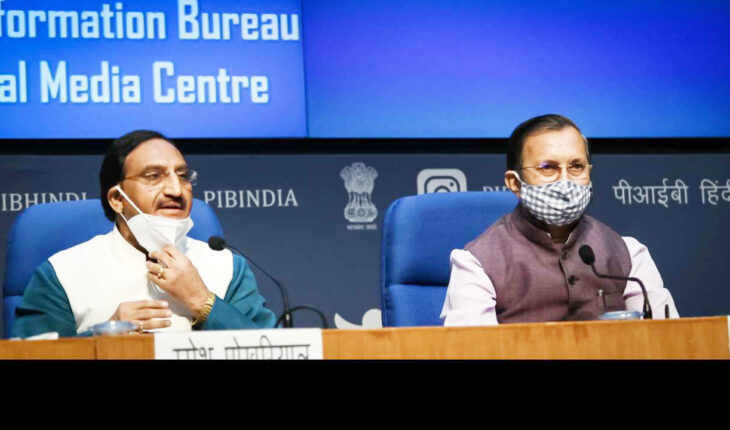Maya John says the new Education Policy will have an adverse impact on accessibility, equity
The Indian Cabinet approved the National Education Policy (NEP) 2020, despite vehement opposition to several of its provisions that were earlier circulated as a draft policy document. Among these provisions is the phasing out of the system of affiliated colleges and the grant of greater autonomy in academic, administrative and financial matters to premium colleges, and essentially, to the top ranked universities of the country.
This measure has drawn on the long-standing anxieties about the perils of politico-bureaucratic interference in the internal functioning of universities, and concerns about the substantial burden on universities which have to regulate admissions, set curricula and conduct examinations for a large number of undergraduate colleges. Likewise, concerns have long existed about over-centralisation, namely, the constraints imposed on the potential for premium affiliated colleges to innovate and evolve. Notably, drawing on such concerns, the earliest inclinations towards autonomy were reflected in the recommendations of different education committees from the 1960s onwards. In its report, the Mahajani Committee on Colleges (1964), for example, took the position that one way of improving the standard of higher education in India was by selecting a few colleges “on the basis of past work, influence, traditions, maturity and academic standards and give them what might be called for want of a better phrase an ‘autonomous’ status”.
Even while solutions to apprehensions about over-centralisation were being discussed by stakeholders, these came to be used by successive governments to build a case for the model of graded autonomy. This model has adverse ramifications for accessibility, equity and quality for the higher education sector.
In its current form, NEP 2020 as introduced by the NDA government is a curious combination of enhanced centralising features and specific features of autonomy. The thrust towards deeper centralisation is indicative in the constitution of the government nominated umbrella institution, Higher Education Council of India (HECI); corporate-style Board of Governors with powers hitherto assigned to governing bodies of colleges and to other statutory bodies of HEIs; as well as the new apex body, the National Education Commission, that is responsible for “developing”, “implementing” and “evaluating” the “educational vision of the country”.
The issue of autonomy is the key to unravelling the inherent problem with NEP 2020 in matters of higher education. By engaging with the multi-fold ramifications of this provision, a lot can be gleaned on the heavy cost that the common masses will pay in terms of growing inaccessibility of higher education. Importantly, the model of graded autonomy is not based on universalisation of educational resources and equal access to quality higher education, but on furthering the prevailing hierarchy that exists between different colleges within a public-funded university, and between different universities across the country. While the best colleges gain the autonomy to bring in their own rules, and graduate to a privileged status whereby they enjoy the benefits of special funds from the newly proposed funding agencies, it is estimated that affiliated colleges with lower rankings and less than 3,000 students face the threat of mergers and even closure. Such collateral damage contradicts targets set for higher gross enrolment ratios. A shrinking of the number of public-funded colleges will further push out marginalised sections and relegate them to low-grade private colleges and/or to informal education in the ODL and online modes.
The possibility of enhanced inaccessibility of quality higher education looms large when we also consider that the independent rules and regulations of autonomous colleges and universities shall curtail transparent admission procedures, which guarantee underprivileged students a share of seats in prestigious institutions. Similarly, graded autonomy can be expected to trigger a massive spurt in expensive self-financed courses as premium colleges, as well as struggling affiliated colleges, strive to chalk out their financial self-sufficiency.
Maya is an Assistant Professor at Delhi University. Views expressed are her own





